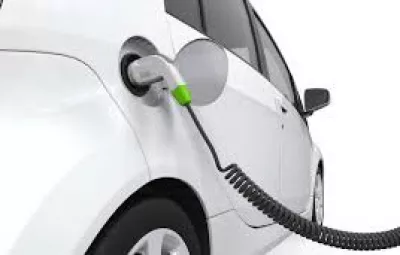The new electric vehicle (EV) manufacturing policy, recently announced by the Central government, focuses on attracting global players to invest in India while encouraging domestic value addition. According to ACMA President Shradha Suri Marwah, this policy aims to accelerate technology adoption and innovation in the automotive sector.
Marwah highlighted that the policy emphasizes a significant Domestic Value Addition (DVA) criteria to create a strong supply-side ecosystem and pave the way for India to become a global manufacturing hub in future mobility.
To lure companies like Tesla, the policy requires a minimum investment of Rs 4,150 crore for setting up manufacturing facilities, with production starting within three years. The goal is to achieve 25% DVA within three years and 50% DVA within five years, with a focus on local production.
Under the new policy, a customs duty of 15% would be applicable on vehicles with a minimum CIF value of $35,000 and above for a period of 5 years, provided manufacturers establish facilities in India within three years. The duty forgone on the allowed number of EV imports would be capped at the investment made or Rs 6,484 crore.
The government has also outlined a maximum allowance of 40,000 EV imports at a rate not exceeding 8,000 per year for companies investing $800 million or more, with the option to carry over unutilized annual import limits. Additionally, companies must back their investment commitment with a bank guarantee to ensure compliance with DVA and minimum investment criteria.
ICRA Ltd’s Shamsher Dewan predicts that about 15% of new car sales will be electric by 2030, with the policy expected to boost EV components localization in India. While chassis components are already localized, there is room for advancement in traction motors, control units, and battery management systems, as well as opportunities for domestic auto component suppliers.
The policy is seen as a positive step towards enhancing EV adoption and promoting indigenous manufacturing in the electric vehicle segment, which is poised for significant growth in the coming years.

 Euan Blair Net Worth 2024: How Much is Tony Blair’s Son Worth?
Euan Blair Net Worth 2024: How Much is Tony Blair’s Son Worth? David Copperfield Net Worth 2024: How Much is the Novel by Charles Dickens Worth?
David Copperfield Net Worth 2024: How Much is the Novel by Charles Dickens Worth? Noel Biderman Net Worth 2024: How Much is the Canadian Internet entrepreneur and business professional Worth?
Noel Biderman Net Worth 2024: How Much is the Canadian Internet entrepreneur and business professional Worth? Adam Selipsky Net Worth 2024: How Much is the CEO of Amazon Web Services, Inc. Worth?
Adam Selipsky Net Worth 2024: How Much is the CEO of Amazon Web Services, Inc. Worth? Ken Langone Net Worth 2024: How Much is the American Businessman Worth?
Ken Langone Net Worth 2024: How Much is the American Businessman Worth? Anthony Geisler, Xponential Fitness Founder and CEO Suspended “Indefinitely” Amid Fraud Allegations
Anthony Geisler, Xponential Fitness Founder and CEO Suspended “Indefinitely” Amid Fraud Allegations Navigating Forex Brokers: Choosing the Right Partner for Your Trading Journey
Navigating Forex Brokers: Choosing the Right Partner for Your Trading Journey Navigating the Complexities of MT4: A Comprehensive Guide for Beginners
Navigating the Complexities of MT4: A Comprehensive Guide for Beginners